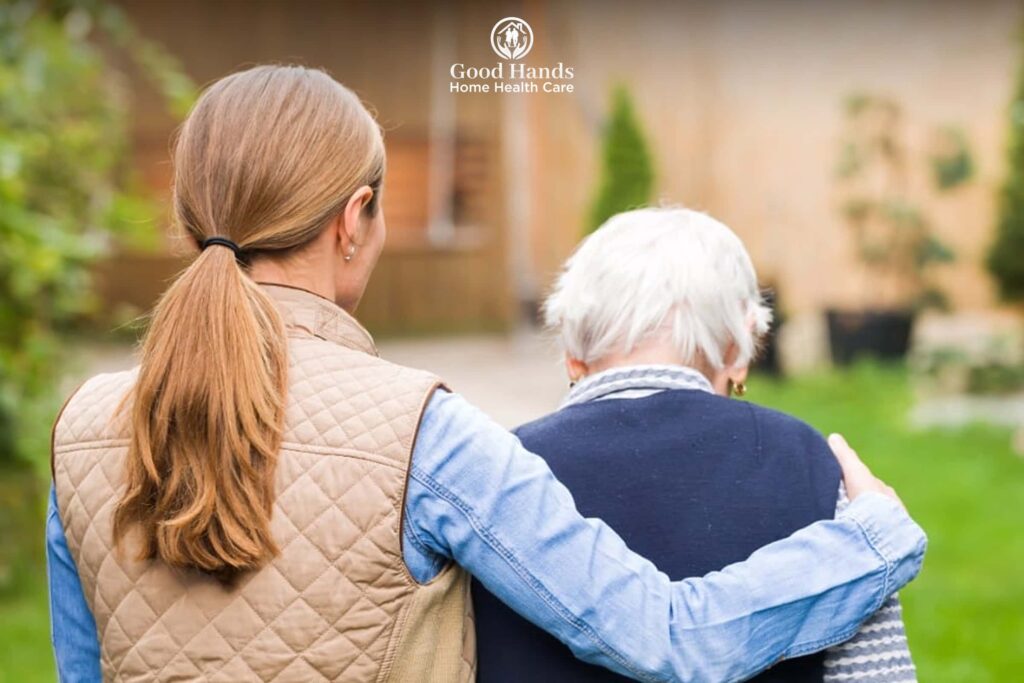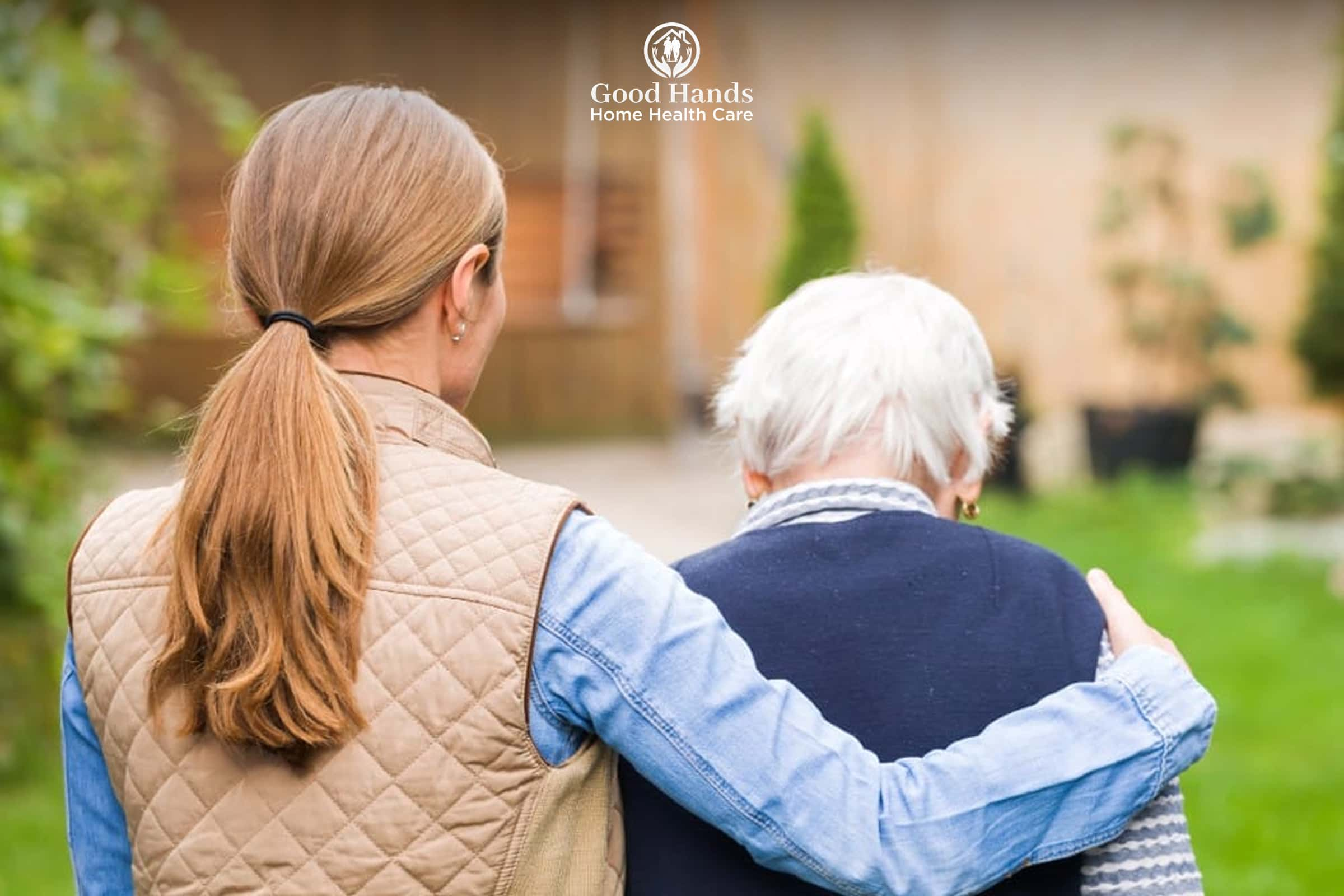Blog

Mental Wellbeing in Later Life: How to Stay Emotionally Balanced

Mental Wellbeing in Later Life: How to Stay Emotionally Balanced
Embracing the golden chapter of life with psychological fortitude can revolutionize one’s aging journey. At Good Hands Home Health Care, we recognize that emotional health deserves equivalent priority to physical wellbeing. Through implementing deliberate approaches and accessing appropriate assistance, seniors can cultivate a positive mindset and experience a more enriched, harmonious existence beyond their sixth decade. Mental wellbeing over 60 encompasses a comprehensive strategy addressing both psychological and physiological requirements.
Understanding Mental Health in Older Adults
Mental wellbeing over 60 demands particular consideration as psychological requirements transform alongside physiological changes. While conventional focus often gravitates toward bodily maintenance in elderly individuals, emotional equilibrium warrants identical attention—particularly as life transformations create unfamiliar territories to traverse. Contemporary perspectives on mental health in elderly populations have progressed substantially, acknowledging the distinctive hurdles encountered during this life phase.
Common Challenges After 60:
- Depression and anxiety precipitated by significant life alterations.
- Bereavement from the departure of spouses, companions, or relatives.
- Cognitive transformations influencing mood regulation and self-identity.
- Adaptation struggles to post-career life or diminished autonomy.
- Pharmaceutical side effects disrupting emotional stability.
The mental health in elderly populations frequently remains unaddressed due to generational stigmas and misconceptions that emotional difficulties represent inevitable aspects of growing older. Nevertheless, sustaining emotional equilibrium remains critical throughout one’s lifespan, perhaps increasingly vital during advanced years when confronting substantial shifts in personal identity, life purpose, and communal bonds. Cultivating awareness regarding these obstacles facilitates pathways toward meaningful assistance and intervention before complications intensify.
The Impact of Loneliness and Isolation
Loneliness in aging constitutes one of the most formidable threats to psychological harmony. As social networks naturally contract through workforce departure, geographic relocations, and bereavement, numerous seniors discover themselves progressively secluded. This disconnection isn’t merely uncomfortable—scientific evidence indicates it can initiate severe consequences comparable to tobacco use or excessive weight.
The correlation between social engagement and emotional wellness seniors experience cannot be exaggerated. Consistent meaningful interactions stimulate cognitive processes, reinforce personal identity, and deliver essential backing during challenging periods. Discovering opportunities to preserve and establish relationships—whether via community organizations, spiritual gatherings, altruistic endeavors, or familial connections—becomes a fundamental component in maintaining psychological equilibrium with advancing age. Initiatives specifically targeting loneliness in aging have demonstrated remarkable effectiveness in enhancing overall quality of life.
Practical Ways to Support Mental Wellbeing
Establishing a foundation for holistic wellness that seniors can depend upon involves intentional daily practices that strengthen resilience and cultivate inner tranquility. Straightforward habits, consistently implemented, often produce the most substantial advantages for comprehensive wellbeing. These approaches don’t necessitate specialized equipment or considerable expense—merely dedication to self-nurturing. Emotional wellness seniors require frequently stems from establishing sustainable daily routines.
Nurture Balance Through:
- Dawn rituals that establish a constructive atmosphere for the day ahead.
- Consistent physical activity customized to individual capability.
- Inventive expression through artistic endeavors, musical activities, journaling, or handicrafts.
- Environmental connection through horticulture or outdoor excursions.
- Acquiring novel abilities that challenge cognitive faculties.
- Substantive social exchanges, regardless of duration.
Regularity matters more than flawlessness when developing wellness practices. Beginning with a single activity and methodically expanding creates sustainable transformation without overwhelming individuals who might already feel vulnerable. At Good Hands Home Health Care, we advocate creating individualized wellness strategies that respect personal preferences, cultural heritage, and specific circumstances.
Stress Management for Older Adults
Life’s difficulties don’t vanish with advancing years—they merely evolve. Mastering effective stress management older adults can implement routinely provides crucial protection against anxiety disorders, depressive states, and even physical ailments. Recognizing tension indicators early permits proactive intervention before distress escalates.
The interrelationship between stress and psychological equilibrium merits particular consideration. Persistent stress diminishes internal resources and can magnify existing conditions. Developing an individual collection of calming techniques—whether controlled breathing, gentle movement exercises, interaction with cherished individuals, or immersion in natural settings—establishes valuable resilience. These instruments become particularly significant during major life transitions, challenges, or when confronting difficult decisions regarding living arrangements or care requirements. Effective stress management older adults employ frequently combines conventional and innovative methodologies.
The Role of Mindfulness and Meditation
Incorporating mindfulness for seniors delivers powerful advantages with minimal investment. These disciplines train cognitive processes to return to present awareness rather than dwelling on past regrets or future anxieties. Even brief periods of mindful attention can interrupt negative thought patterns and create opportunities for more balanced perspectives.
The accessible nature of meditation renders it particularly valuable among calming techniques that can be practiced independently. Scientific investigation consistently demonstrates meditation’s capacity to reduce cardiovascular pressure, enhance sleep quality, and improve overall emotional regulation. Commencing with merely five minutes daily of guided practice can introduce these benefits without seeming daunting. As with any new competency, patience and self-compassion during the learning process yields optimal outcomes. Programs teaching mindfulness for seniors have gained increasing popularity in community centers and care establishments nationwide.
Seeking Help When Needed
Professional assistance plays a crucial function in addressing psychological concerns when self-help strategies prove insufficient. Persistent symptoms including sleep disturbances, appetite fluctuations, withdrawal from previously enjoyed activities, or feelings of hopelessness warrant professional evaluation. These aren’t inevitable components of aging but treatable conditions that respond favorably to appropriate intervention. Emotional wellness seniors require sometimes necessitates professional guidance to navigate complex challenges.
Contemporary wellness practitioners offer increasingly adaptable support options including virtual consultations, residential visits, and age-specific approaches that honor the unique experiences of older individuals. Many insurance programs, including Medicare, now provide coverage for these services, making professional support more accessible than previously. Reaching out requires courage but opens pathways to relief and renewed stability.
Final Thoughts on Emotional Wellness Over 60
The journey toward balanced wellbeing becomes most fulfilling when approached with inquisitiveness and self-kindness. Small daily choices—engaging with others, activating your body, challenging your mind, and practicing appreciation—collectively construct remarkable resilience and contentment.
Maintaining psychological strength isn’t about eliminating all difficulties but developing capabilities to navigate life’s inevitable challenges with greater composure. At every age, humans remain capable of development, restoration, and discovering fresh sources of meaning and fulfillment. Whether seeking support for yourself or a loved one, remember that investment in personal wellness produces returns in overall quality of life and independence.
Take the First Step Toward Emotional Wellbeing Today
Connect with our compassionate team now to explore how we can support your wellness journey with personalized care solutions that honor your unique requirements and preferences.









